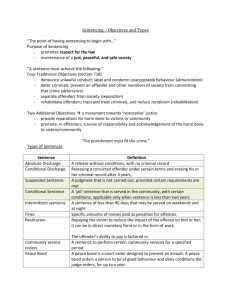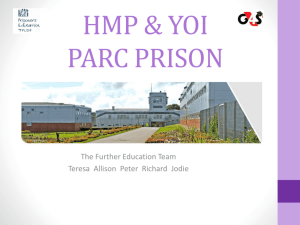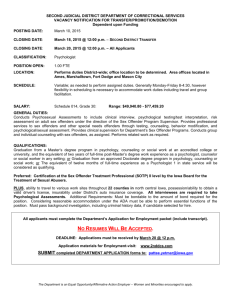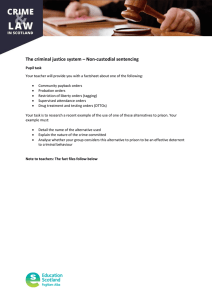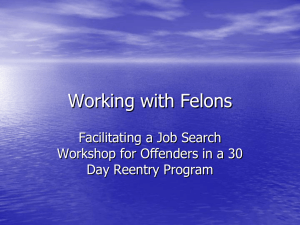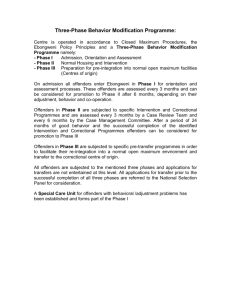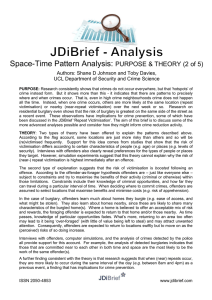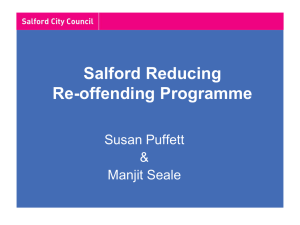breaking the cycle
advertisement
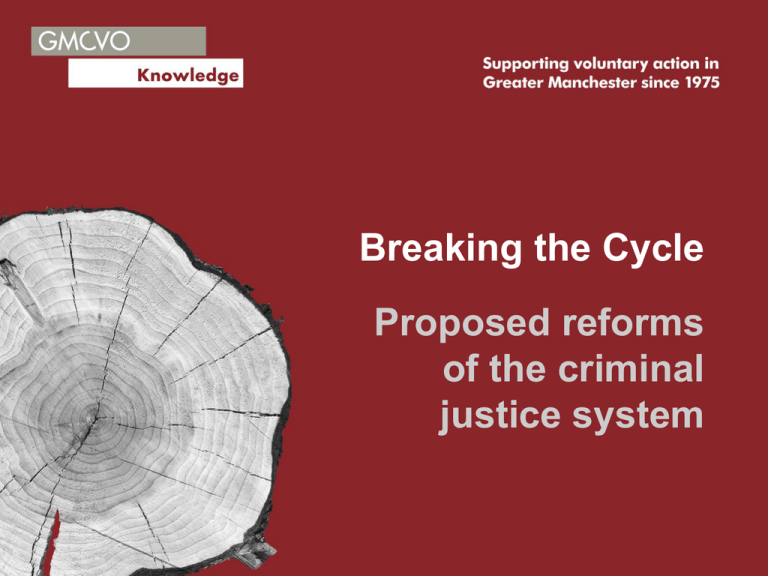
Breaking the Cycle Proposed reforms of the criminal justice system Background • Cost of re-offending is £7-10bn • 50% offenders released from prison reoffend within a year • Reoffending rates for short prison sentences of less than 12 months increased from 58% to 61% in 2008 Offender needs • 37% of prisoners have stated that they will need help finding a place to live when they are released from prison; • 12% said they had a mental illness or depression as a long-standing illness, while 20% reported needing help with an emotional or mental health problem; • 24% said they had been taken into care as a child; • almost half (47%) said they had no qualifications; and • 13% said that they have never had a paid job. Green Paper Proposals • Punishment and payback • Rehabilitating offenders to reduce crime • Payment by results • Sentencing reform • Youth justice • Working with communities to reduce crime Punishment and Payback • Prisons becoming places of hard work and industry • Community sentences punishing offenders and making them pay back to society and the taxpayer • Offenders making greater financial reparation to victims and the taxpayer • Victims engaging with criminal justice on their terms Rehabilitating offenders to reduce crime • Encouraging Integrated Offender Management (IOM) to help equip local partners to work successfully together in the payment by results and financial incentives model • Removing barriers and encouraging more joint working, local innovation and sharing of good practice • Supporting areas in considering new and innovative ways in which the voluntary and community sector can be equal partners in the delivery of Integrated Offender Management Payment by results • establishing at least six payment-by-results projects covering a significant proportion of the offender population; • reducing direct control so that frontline professionals have the freedom to innovate in the way they work with offenders; and • publishing a comprehensive competition strategy for prisons and probation to open up the market to new providers from the private, voluntary and community sectors in June 2011. Youth Justice • preventing more young people from offending and divert them from entering into a life of crime • ensure that more is done to make young offenders pay back to their victims and communities; • ensuring the effective use of sentencing for young offenders; • incentivising local partners to reduce youth offending and re-offending using payment by results models • abolishing the Youth Justice Board and increasing freedoms and flexibilities for local areas. Working with communities to reduce crime • opening up public services to new and independent providers • increasing social action • empowering citizens and communities to hold local agencies to account and share responsibility for making their neighbourhoods safer.

